We found Mr. Ümlaut playing craps. Even before he saw us, I could tell by the look on his face, and the circles under his eyes, that this was not going to be a heartwarming Hallmark moment.
He was throwing the dice, and apparently doing well. Adrenaline was high among the gamblers at the table around him.
“Dad?” said Gunnar. He had to say it again to get his attention. “Dad?”
With the dice still in his fist, he saw us, and it was like he was coming out of a dream. “Gunnar? Kjersten?” Then he saw me, and glared at me like their presence here was all my fault, which it was.
“Sir,” said the craps guy, quickly sizing up the situation, “your children can’t be here.”
“I know.” Mr. Ümlaut threw the dice anyway. I don’t know much about craps, but apparently eleven was good. The other gamblers roared.
“You shouldn’t be here,” Mr. Ümlaut said to us. “Your mother isn’t here, is she?”
“Just us, Daddy,” said Kjersten gently.
“You should go home.”
The craps guy handed him the dice, but was reluctant about it. Mr. Ümlaut shook the dice in his hand while the others standing around the table waited anxiously. Realizing we weren’t going to simply disappear, Mr. Ümlaut said, “Go wait for me in the lobby.” Then he hurled the dice again. Nine. This time only a few of the gamblers were happy.
“Sir, I’m afraid I must insist,” the craps guy said, and pointed to us.
In turn, Mr. Ümlaut pointed to the lobby. “You heard the croupier!” Which sounded a whole lot classier than “craps guy.” It makes you wonder why they haven’t come up with a better name for craps. Croups, maybe.
By now the suit who managed the whole bank of craps tables came over. This guy’s title I knew. He was the pit boss. The croupier’s croupier. “Is there a problem here?” the pit boss asked.
“No,” said Mr. Ümlaut. Then he whispered to Gunnar and Kjersten, “Leave the casino before you create a scene.” Kjersten quietly stood her ground, but Gunnar had enough lip for both of them.
“A scene,” said Gunnar. “Right.” He nodded and backed away. I thought we were going to wait in the lobby, but then Gunnar turned around in the middle of the aisle. For a second I thought he might say something meaningful and thought provoking—like maybe a really well-chosen fake quote. But no. Gunnar decided it was time to sing. This wasn’t a quiet kind of singing either. He belted out at the top of his voice, and the sounds that came out of his mouth were like no words I’d ever heard.
“Du gamla, Du fria, Du fjällhöga nord...”
As far as interventions go, this was taking on a whole personality of its own.
“It’s the Swedish national anthem,” Kjersten explained to me.
“Du tysta, Du glädjerika sköna!”
Mr. Ümlaut just stared at him with the kind of shock and embarrassment that can only come from a parent.
“Jag hälsar Dig, vänaste land uppå jord.”
Kjersten joined in, and now it was a duet. Since I didn’t know the Swedish national anthem, I improvised and began to sing the most Swedish thing I knew. I began to sing a song by that Swedish seventies group, Abba.
So now the croupier looks at the pit boss, the pit boss signals the manager, and the manager comes running.
“Din sol, Din himmel, Dina ängder gröna.”
All gambling in the casino grinds to a screeching halt as we perform.
“You can dance! You can jive! Having the time of your life!” I sing at the manager, who’s much less entertained than I believe he should be.
Kjersten and Gunnar complete their anthem, and although I’ve still got a couple of verses of “Dancing Queen” left, I figure it’s wise to wrap it up early. Some of the gamblers applaud, and not knowing what else to do, we all take fancy bows, and the manager turns to Mr. Ümlaut and says, “I think you should leave now.”
Mr. Ümlaut did not look happy as we crossed the casino toward the lobby. Gunnar, on the other hand, looked downright triumphant at his little victory. Even more triumphant than he did on the night of the rally. It was Kjersten who seemed worried, because she knew as well as I did that this was just one battle in a much bigger war. The security guard escorting us must have resented that look on Gunnar’s face, because he was rough with him, and got rougher when Gunnar tried to pull out of his grasp.
“Are you gonna let this rent-a-cop beat me up?”
Mr. Ümlaut didn’t look at him. He didn’t say a word until we were off the casino floor, and the security guard returned to his duties, satisfied that we were no longer a threat.
“Proud of yourself, Gunnar?”
“Are you?” Gunnar answered, with such righteous authority that his father couldn’t look him in the eye.
“There are things you don’t understand.”
“I understand a lot more than you think.”
Rather than letting the two of them bicker, Kjersten cut it off. “Daddy,” she said, “we want you to come home.”
He didn’t answer right away. Instead he looked at them, perhaps searching for something in their faces, but you couldn’t read much in those two—in that way, they took after their father.
“Didn’t your mother tell you?” he said.
“What?” said Gunnar. “That you’re splitting up? Of course she did.”
It surprised me that he hadn’t told them himself. Even if they already knew, he had a responsibility to say it in his own words.
“I will let you know where I am, once I know myself,” he said. “There’s nothing to worry about.”
“There’s a lot to worry about,” Gunnar said—then Gunnar got closer to him. All this time he had maintained a distance from his father, like there was an invisible wall around him. Now Gunnar stepped inside that wall. “You’re sick, Dad.” He looked at the casino, all full of whirring, blaring, coin-clanging excitement, then turned back to his father. “You’re very sick. And I think if you don’t do something about it... if you don’t stop gambling, somehow it’s going to kill you.”
But rather than taking it in, Mr. Ümlaut seemed to just pull his wall in closer, so Gunnar was on the outside again. “Is that what your mother says?”
“No,” said Kjersten. “We figured it out for ourselves.”
“I appreciate your concern,” he said, like he was talking to strangers instead of his children. “I’ll be fine.”
“What about them?” I said. Maybe I was out of line speaking at all, but I had to say something.
Suddenly I found all his anger turned against me. “What business is this of yours? What do you know about our family? What do you know about anything?”
“Leave him alone!” shouted Kjersten. “At least he’s around when we need him. At least he’s there.” Which I guess is the best you could say about me. “At least he’s not away day after day, gambling away every penny he owns. How much money have you lost, Dad? Then the car—and now the house ...”
“You’re not understanding!” he said, loud enough to snag the attention of another family waiting to check in. They peered at us over their luggage, pretending not to. Mr. Ümlaut forced his voice down again. “The car, the house—we were losing them anyway—if not this month, then next month. A few dollars gambled makes no difference.”
I think he truly believed that—and for the first time, I began to understand what Kjersten and Gunnar were up against. Mr. Ümlaut had, once upon a time, been a lawyer. That meant he could create a brilliant and convincing argument as to why the hours, days, and weeks spent in a casino were the best possible use of his time. I’m sure if I sat there and let him make his argument, he might even convince me. Juries let guilty men go free all the time.
Читать дальше
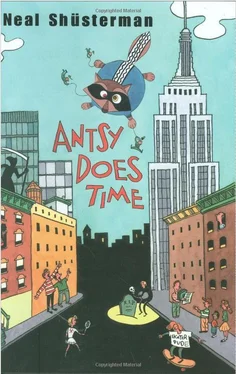
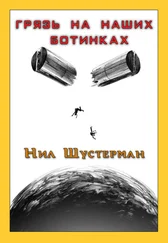
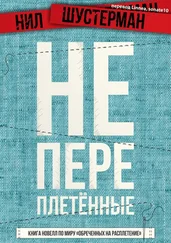
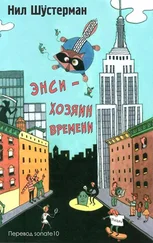


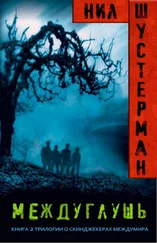
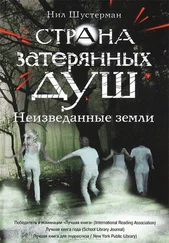
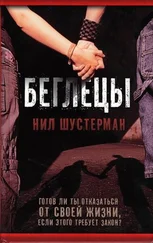

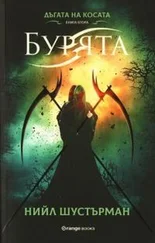
![Нил Шустерман - Жнец [litres]](/books/418707/nil-shusterman-zhnec-litres-thumb.webp)